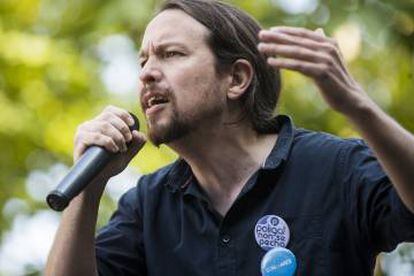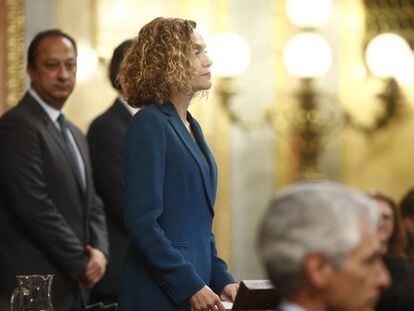Spain’s Socialists moving closer to coalition government with Podemos
While acting PM Pedro Sánchez wants to lead a minority administration, lack of support from Ciudadanos and recent events in Congress are prompting him to reconsider

While Spain’s acting prime minister, Pedro Sánchez of the Socialist Party (PSOE), has not given up on his original plan to head a minority government with case-by-case support from other parties, he is inching closer to Plan B: a coalition government with Podemos.
Sources from both parties said that this is becoming an increasingly likely option due to the political situation.
“A coalition would not be dramatic for the PSOE, although it is not our first option,” said a party leader. If so, it would be a first in modern democratic history for a country that was dominated by a two-party system until the emergence of Podemos and Ciudadanos (Citizens) during the economic crisis.
A coalition would not be dramatic for the PSOE, although it is not our first option
Socialist Party official
After winning the snap election of April 28 with 123 seats, significantly short of the 176 required for an overall majority, Sánchez is being forced to seek additional backing to form a government.
No support is forthcoming from the 57 lawmakers for Ciudadanos, a liberal party that once teamed up with the PSOE on a 2016 pact that ultimately fell through, and which has since shifted to the right in response to the rise of the the far-right Vox.

This leaves the leftist Unidas Podemos (42), which is keen to form a coalition government with portfolios for some of its leading members. Sources said that Podemos is no longer seeking key ministries such as justice, foreign affairs, defense, interior affairs or the treasury. Negotiations will begin next week, after the local elections of this coming Sunday.
Relations between the PSOE and Unidas Podemos are currently as good as they have ever been. Both parties are about to close a deal for a coalition government in Valencia (which held regional elections on the same day as the general election), and further alliances are expected to emerge from the municipal vote on Sunday.
Plan A
Ideally, Sánchez would like to fly solo with case-by-case support from Unidas Podemos on some issues and Ciudadanos on others. But Ciudadanos chief Albert Rivera has decided that he wants to head the opposition, despite having nine fewer lawmakers than the Popular Party (PP). In that capacity, he has already insinuated that Sánchez should not expect any help from him.
That attitude, coupled with the remarkably tense mood at the inaugural session of Congress on Tuesday, is pushing the PSOE to reconsider its position and leave the door open to a coalition government after all.
Both parties are analyzing case studies from other countries to determine how much Unidas Podemos can ask for, and how much the PSOE can yield. For now, nobody is mentioning the possibility of a repeat election, although there is a precedent: no candidate earned enough parliamentary support to form a government after the December 2015 election, leading to a new vote six months later.
English version by Susana Urra.












































